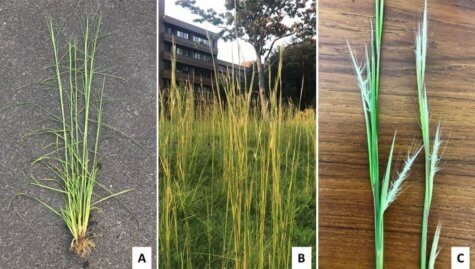HIROSHIMA, Japan — An invasive weed native to the southeastern United States, called Andropogon virginicus, can wreak havoc in gardens and backyards. According to a new study however, it may also prove helpful in treating various human diseases such as cancer and diabetes.
A. virginicus has already spread north to Canada and even sprouts up in both Japan and Australia. It is a particularly nasty weed, capable of reaching heights of seven feet and disrupting local growth patterns. Moreover, researchers say if you burn it, it’ll just grow back stronger and thicker than before.
“A. virginicus is an invasive weed that seriously threatens agricultural production and economics worldwide,” says study author Tran Dang Xuan, associate professor at the Graduate School of Advanced Science and Engineering at Hiroshima University, in a release.
“However, no solution efficiently utilizing and tackling this plant has been found yet. In this paper, we highlight the potential application of A. virginicus extracts in future medicinal production and therapeutics of chronic diseases such as type 2 diabetes and blood cancer, which can deal with both crop protection and human health concerns.”
A weed packed with helpful antioxidants?

(A) Bud stage; (B) Flowering stage; (C) Spikelets (Credit: Quan, Hiroshima University)
An examination of A. virginicus samples revealed high flavonoid levels. This is notable because scientists say flavonoids contain both antioxidant and anti-inflammatory properties. When study authors tested those samples against different cell lines, flavonoids bonded to free radicals and protected cells from damage.
On an actionable level, researchers say this flavonoid activity can help maintain youthful skin by stopping age spots and prevent knock-on cellular actions connected to type 2 diabetes. When the flavonoids were exposed to a line of chronic myelogenous leukemia (a rare variety of blood cancer), the chemicals appeared to kill the cancer cells.
Researchers will need to do much more work before any conclusive statements can be made, but these initial results certainly suggest A. virginicus may offer some powerful health benefits for people.
“Although A. virginicus has been considered a harmful invasive species without economic value, its extracts are promising sources of antioxidant, anti-diabetic, anti-tyrosinase, and antitumor agents,” Xuan concludes.
The study is published in Plants.
